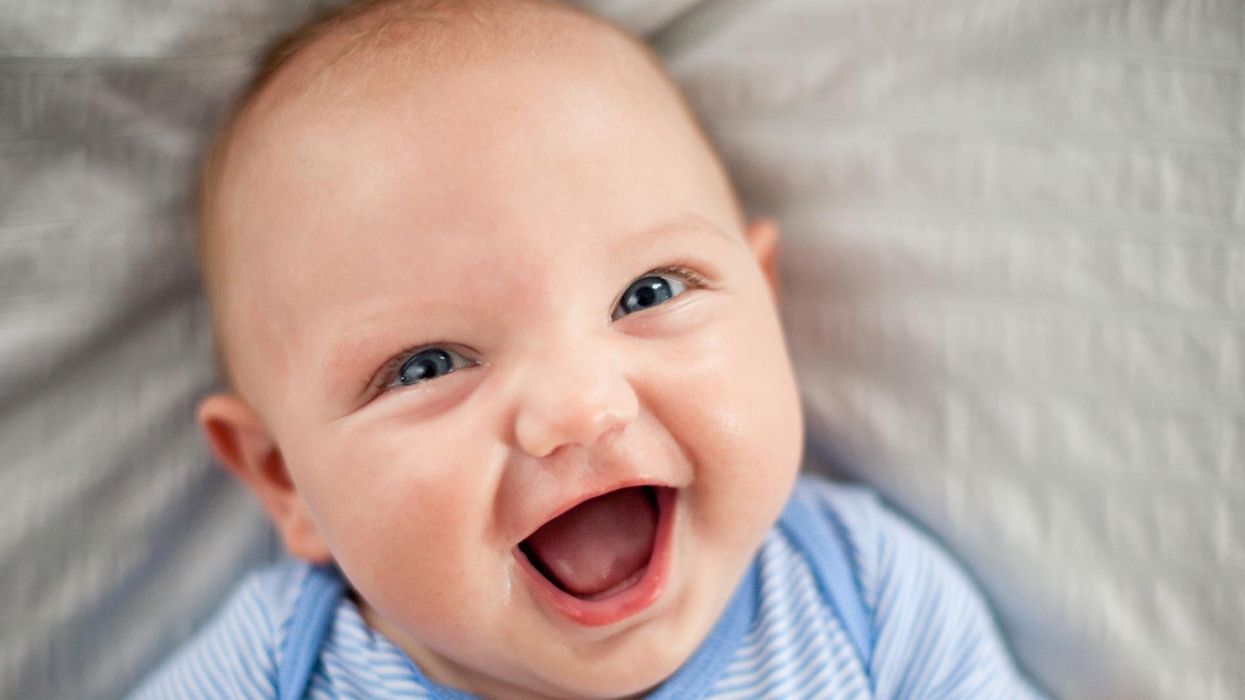Viral
Narjas Zatat
Jan 21, 2018

Picture:
iStock / ideabug
There’s an app for everything, it seems.
BabyGlimpse says it offers couples a peek into what their child will look like by taking a sample of their DNA.
The new app claims to take DNA from the possible mother and father and explores the potential physical traits the child could have.
It also apparently shares insights such as “grip strength, sunlight sensitivity and sleep behaviours” and even whether they will prefer certain types of food.
Founder and former genetics research associate Jennifer Lescallett told Baltimore Sun:
BabyGlimpse is sort of like the bright side of genetics. We’ve coined it sunshine science. You get to look at the fun part of your potential future baby versus some of the scary stuff.
Genetic testing is already available for couples who wish to see if their baby is at risk from medical or developmental complications, but the app says it would focus on the superficial aspects of a child, like appearance.
Lescallett’s app is part of an increase in direct-to-consumer genetic testing products, like AncestryDNA and 23andMe.
The BabyGlimpse website calls it a “fun and informational experience” - but medical professionals are worried about this growing trend.
The Centre for Disease Control and Prevention warned people against taking these tests too seriously.
Although personal genomic tests for disease susceptibilities could help to make decisions about lifestyle choices or inform discussions with providers, they are not diagnostic tests, and cannot be used alone for treatment decisions or other medical interventions.
It added:
We advised consumers to think critically about the health utility of these types of tests, as well as the potential harms and unnecessary follow-up health care costs that could result from testing.
In our three-tiered evidence classification of genomic tests, we include personal genomic tests as “tier 3” tests. Such a rating implies that there is no evidence for clinical validity or utility of such applications in healthy individuals in the population.
There are also worries that labelling babies from an early age might negatively impact their opportunities in life.
Muin Khoury, Director, Office of Public Health Genomics, Centers for Disease Control and Prevention told Wired:
And we still don’t understand very well the unintended consequences of labeling people.
Once you think you know certain information, it’ll affect how you think about your baby for life.
For example, if you know they have a sensitivity to the sun, perhaps you’ll prevent them from playing outdoor sports.
Khoury explains that genetics is more complicated and less deterministic than the app suggests. Plus, your environment - for example, how you're brought up and how you eat - also has a significant impact on certain traits.
More: A simple DNA test made people think very differently about immigrants
More: Scientists say Pacific Islanders have DNA from unknown human ancestors
Top 100
The Conversation (0)












